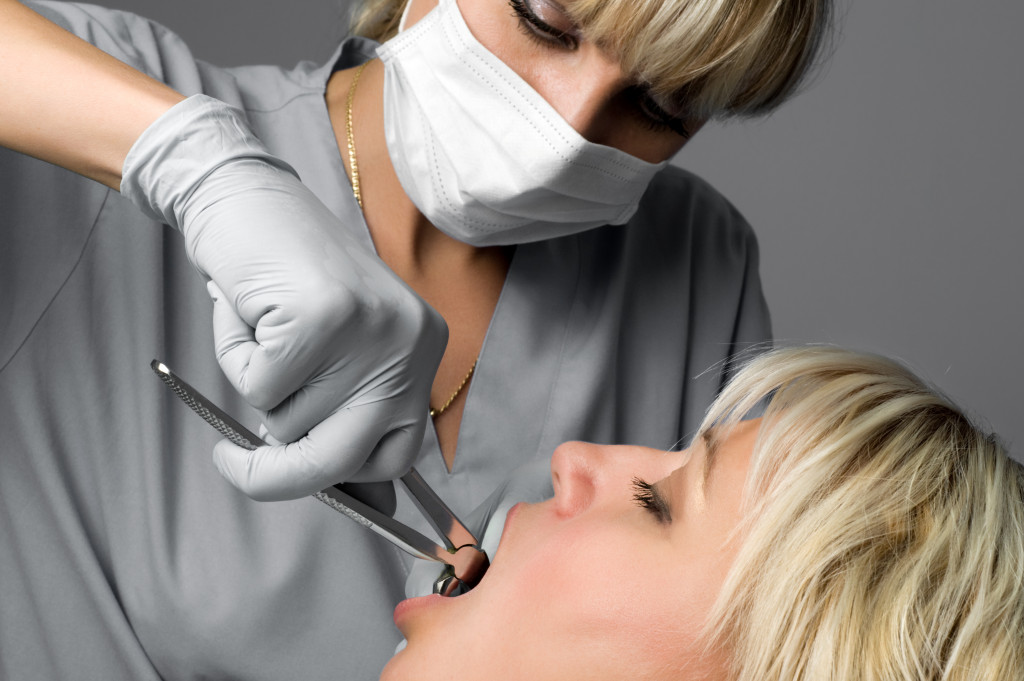A simple smile can make or break our self-esteem. That’s why many people these days are taking dental visits quite seriously. With Zoom meetings becoming the new normal, people are becoming self-conscious of how they smile and talk and even the look of their teeth. With only our faces left exposed to our colleagues, people turn to cosmetic dentists and tooth-whitening procedures to look presentable. Meanwhile, those who have to wear braces wear Invisalign to avoid the inconveniences of metal braces.
There’s no doubt that dental treatments are life-changing, but this isn’t the case for patients who are left traumatized every time they sit in the dentist’s chair. Experts call this dental phobia or dental anxiety. According to Harvard Medical School, dental phobia affects 13% to 24% of individuals around the world. Dental anxiety can be a disturbing experience but not completely disabling. Still, affected individuals have become so traumatized that they’re avoiding dental visits altogether until a dental issue kicks in.
Foregoing dental visits can lead to serious consequences that go beyond lost teeth or dental pain. Studies now associate dental problems with chronic illnesses, such as stroke, diabetes, and heart disease. If you’re among those few people who dread the idea of dental appointments, we are here to help you. Here are the causes of dental anxiety and how to address them.
Fear of pain
A fear of pain is one of the common causes of dental anxiety. This may stem from previous dental experiences that didn’t turn out well or hearing about others’ painful experiences.
Humans have different levels of pain threshold. Some find it easy to endure pain, while others easily flinch, especially if they’re nervous. A fear of pain is a natural human response, and it’s certainly understandable that no one wants to experience pain. That’s why it’s important to look for a dentist who is considerate enough and knows how to manage your fear. These dental professionals specialize in taking a lot of time and effort to keep you comfortable from the beginning until the end of the procedure.
Modern dentistry has met significant advancements, especially in providing painless dental treatments. Anesthetic injections now produce faster results by numbing your mouth with slight pressure.
Also, pain sensitivity increases when the body has extreme tension. So the next time you visit the dentist, try meditation exercises and deep breathing techniques at home to help your body relax by the time you reach the clinic.

Fear of needles
A fear of needles isn’t only common among children but also adults, especially when that sharp, thin object is inserted in the mouth. For others, their fear stems from the feeling of the needle, while some are simply scared by the image of the needle.
To ease the sting of injection, communicate to your dentist about your concern. Dentists provide dental anesthesia not only through injections but also in topical gels. They also have the same numbing effect on your mouth. Dentists now use thinner anesthesia needles if it isn’t possible, so the injection won’t hurt that much.
Distractions also help in getting your mind off during the procedure. You can bring headphones to listen to relaxing music during the treatment. Many dental clinics have televisions mounted on the walls of their treatment rooms to help their patients relax or keep them distracted.
Fear of losing control
Some patients fear the idea of sitting still in a dentist’s chair with their mouths open while the dentists busy themselves in the procedure. Not knowing what’s happening to their mouth makes them feel vulnerable because of uncertainty. The thought of being out of control and feeling helpless may probably stem from previous trauma, such as head or neck accidents. It can also arise from domestic violence or other traumatic encounters.
One way to overcome the feeling of helplessness or being vulnerable during dental procedures is to know every moment of the procedure as it happens. Make sure to discuss this with your dentist ahead of the procedure to help you relax. Remember, there’s no trouble about asking your dentist to provide a detailed explanation of the treatment.
As you have observed above, the best way to calm your nerves during dental visits is to communicate your fears with your dentist openly. They may even provide suggestions to help you overcome your dental anxiety.
In the end, dental treatments shouldn’t be a painful experience. Dental professionals undergo years of education and training to help people bring out their brightest smiles. If you’re suffering from dental anxiety, inform your dentist about it and let them help you. Remember, skipping dental visits has far worse consequences than your fear of your dentist.
